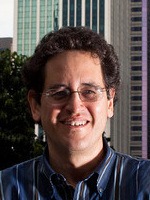John Baez in Nautilus:
 Everyone seems to be talking about the problems with physics: Peter Woit’s book Not Even Wrong, Lee Smolin’s The Trouble With Physics, and Sabine Hossenfelder’s Lost in Math leap to mind, and they have started a wider conversation. But is all of physics really in trouble, or just some of it? If you actually read these books, you’ll see they’re about so-called “fundamental” physics. Some other parts of physics are doing just fine, and I want to tell you about one. It’s called “condensed matter physics,” and it’s the study of solids and liquids. We are living in the golden age of condensed matter physics.
Everyone seems to be talking about the problems with physics: Peter Woit’s book Not Even Wrong, Lee Smolin’s The Trouble With Physics, and Sabine Hossenfelder’s Lost in Math leap to mind, and they have started a wider conversation. But is all of physics really in trouble, or just some of it? If you actually read these books, you’ll see they’re about so-called “fundamental” physics. Some other parts of physics are doing just fine, and I want to tell you about one. It’s called “condensed matter physics,” and it’s the study of solids and liquids. We are living in the golden age of condensed matter physics.
But first, what is “fundamental” physics? It’s a tricky term. You might think any truly revolutionary development in physics counts as fundamental. But in fact physicists use this term in a more precise, narrowly delimited way. One of the goals of physics is to figure out some laws that, at least in principle, we could use to predict everything that can be predicted about the physical universe. The search for these laws is fundamental physics.
The fine print is crucial. First: “in principle.” In principle we can use the fundamental physics we know to calculate the boiling point of water to immense accuracy—but nobody has done it yet, because the calculation is hard. Second: “everything that can be predicted.” As far we can tell, quantum mechanics says there’s inherent randomness in things, which makes some predictions impossible, not just impractical, to carry out with certainty. And this inherent quantum randomness sometimes gets amplified over time, by a phenomenon called chaos. For this reason, even if we knew everything about the universe now, we couldn’t predict the weather precisely a year from now. So, even if fundamental physics succeeded perfectly, it would be far from giving the answer to all our questions about the physical world. But it’s important nonetheless, because it gives us the basic framework in which we can try to answer these questions.
More here.
